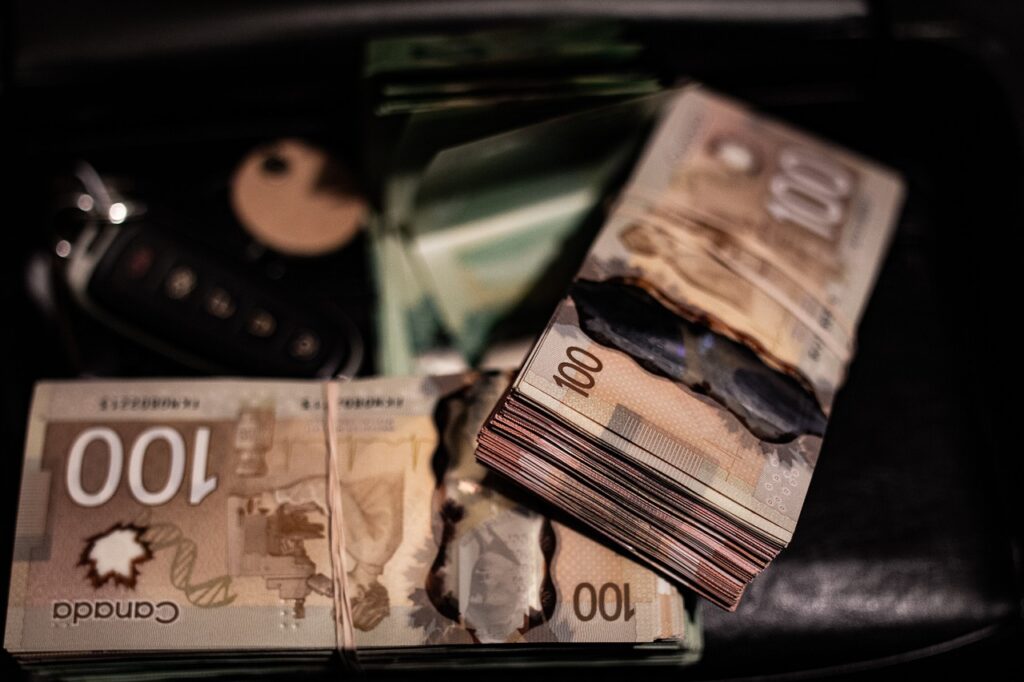When planning a trip to Canada, it’s essential to familiarize yourself with the country’s currency to ensure a smooth and hassle-free experience during your visit. Canada boasts a unique and colorful monetary system that reflects its rich history, culture, and economic strength. In this article, we’ll dive into the details of the currency used in Canada and provide you with valuable insights to help you navigate your financial transactions while exploring the Great White North.
Canadian Dollar: The Official Currency

The official currency of Canada is the Canadian Dollar, denoted by the symbol “$” and the currency code “CAD.” The Canadian Dollar is subdivided into 100 smaller units called cents, symbolized by “¢.” It’s important to note that while some other countries may also use the dollar as their currency, the Canadian Dollar is distinctive in both its design and value.
Banknotes and Coins
Canadian banknotes and coins showcase a fascinating blend of historical figures, iconic landmarks, and artistic representations. The banknotes feature portraits of notable Canadians and scenes that celebrate the nation’s diverse heritage. The coins, on the other hand, are known for their innovative designs, including the famous “loonie” and “toonie.”
- Loonie: The Canadian one-dollar coin is affectionately known as the “loonie.” It earned its name due to the image of a common loon, a bird indigenous to Canada, depicted on one side of the coin.
- Toonie: The two-dollar coin is commonly referred to as the “toonie.” It features an image of a polar bear, symbolizing Canada’s northern wilderness.
In addition to the loonie and toonie, you’ll encounter various coins denominated in cents, including the 5-cent nickel, 10-cent dime, 25-cent quarter, and 50-cent piece.
Currency Exchange and Conversion Rates
When exchanging your home currency for Canadian Dollars, it’s important to be aware of exchange rates. Exchange rates fluctuate based on a variety of factors, including economic conditions, political stability, and market demand. It’s advisable to research current exchange rates before your trip and consider exchanging currency at reputable financial institutions or currency exchange bureaus for the best rates.
Accepted Forms of Payment
Canadian Dollars are widely accepted throughout the country for various transactions. Major credit and debit cards are also commonly used, with Visa and Mastercard being widely recognized. Contactless payments, such as Apple Pay and Google Wallet, have gained popularity and are accepted in many establishments.
Currency Conversion Tips for Travelers
- Notify Your Bank: Before traveling to Canada, inform your bank about your travel plans to avoid any issues with using your credit or debit cards abroad.
- ATMs: Automated Teller Machines (ATMs) are readily available across Canada, allowing you to withdraw Canadian Dollars using your debit or credit card. However, be mindful of any associated fees and exchange rates.
- Carry Cash: While electronic payments are widely accepted, having a small amount of Canadian cash on hand can be convenient, especially for smaller transactions and in areas with limited card acceptance.
- Currency Converter Apps: Downloading a currency converter app can help you quickly calculate the value of your home currency in Canadian Dollars, making it easier to understand prices and stay within your budget.
In Conclusion
As you embark on your journey to Canada, understanding the country’s currency – the Canadian Dollar – is an essential step to ensure a seamless and enjoyable experience. Whether you’re marveling at the intricate designs of Canadian banknotes, exchanging currency at a local bank, or using your credit card for a memorable shopping spree, embracing the Canadian Dollar will enhance your connection to the diverse and vibrant culture of the Great White North.
Disclaimer: This article provides general information about the currency used in Canada and is not intended as financial or travel advice. Currency values and exchange rates may vary, so it’s recommended to consult with financial experts or official sources for accurate and up-to-date information.
